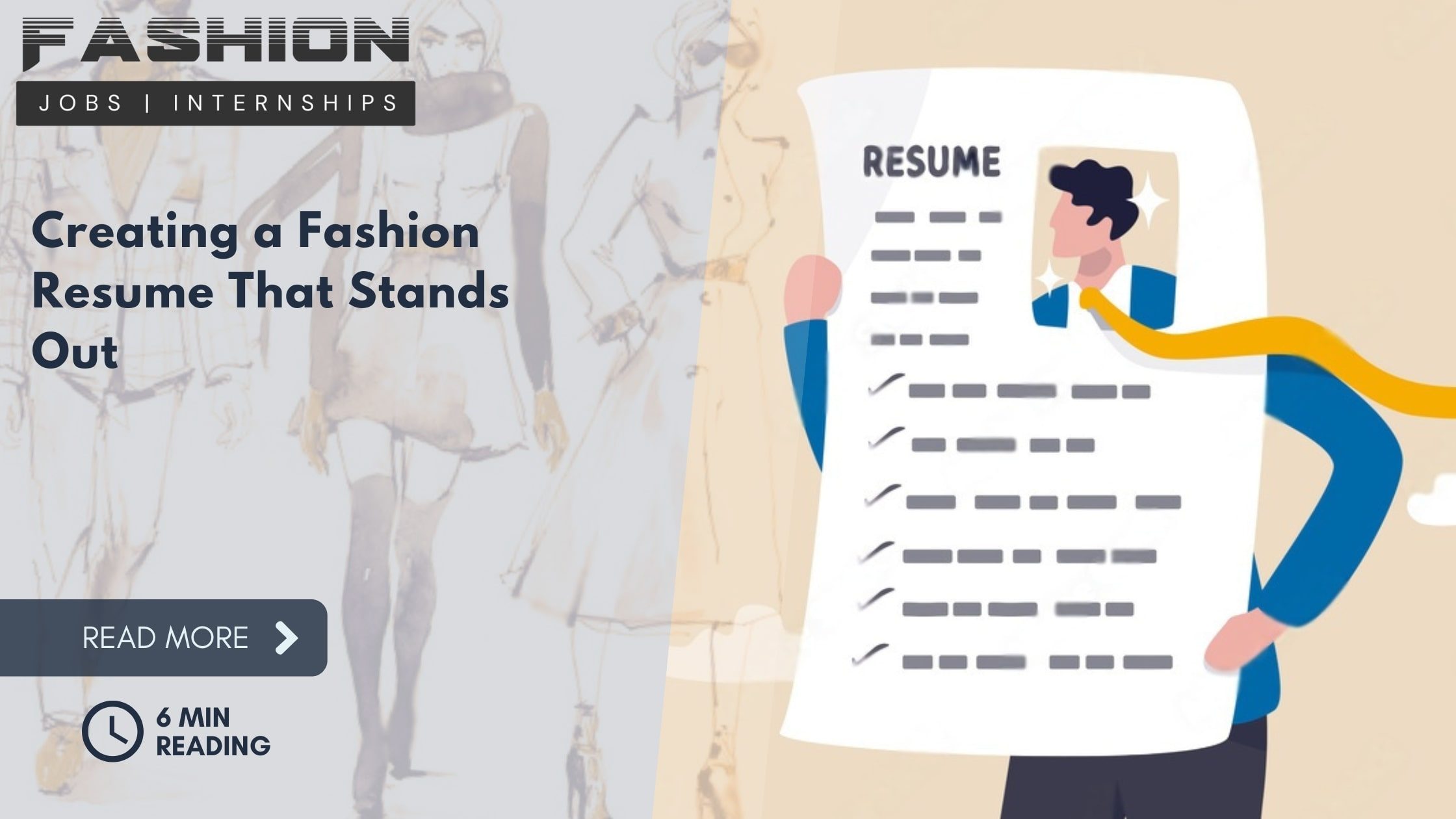We've all been there – sitting in a high-stakes Indian fashion job interview, and then it happens: the salary question. So, how do we discuss our expectations without lowballing ourselves or scaring off the employer? The key is to do our research, know the market rate, and understand our worth. With average salaries ranging from 25,000 for a junior designer to 2,00,000 for a seasoned manager, it's essential to have a solid grasp of the industry standards. So, let's get down to business and explore how to confidently – and successfully – discuss our salary expectations, and what comes next when we do.
Researching Indian Fashion Industry Salaries
As we explore the world of fashion job interviews, it's vital we get a grip on the numbers – specifically, the salaries in the Indian fashion industry. Knowing what to expect can save us from awkward negotiations and underpaid jobs.
To start, let's look at some Indian fashion salary surveys. These surveys give us an idea of the average salaries for different positions in the industry. For instance, a fashion designer can expect to earn anywhere from ₹25,000 to ₹1.5 lakh per month, depending on experience.
With over 3,178 job openings in fashion designing in India, it's vital to have a clear understanding of the salary range fashion job opportunities.
Next, we need to understand fashion industry pay grades. Pay grades are the different levels of salaries within a company, and they're usually based on experience, skills, and qualifications. Knowing the pay grades can help us determine where we fit in and what we should be earning.
For example, a junior fashion designer might start at a lower pay grade, but with experience and skills, they can move up to a higher pay grade.
When researching salaries, it's vital to weigh factors like location, industry segment, and company size. A fashion designer working in Mumbai or Delhi might earn more than one working in a smaller city.
Similarly, a designer working for a luxury brand might earn more than one working for a fast-fashion brand. By doing our research, we can get a realistic idea of what we should be earning and negotiate our salaries with confidence.
Understanding Your Worth
Our worth meter is often stuck on "undervalued" – and it's time we recalibrate it. We've probably all been there – second-guessing our skills and underestimating our value.
But, it's crucial to remember that we're not just asking for a salary, we're asking for a reflection of our worth in the industry. To get that right, we need to understand what we bring to the table.
For instance, having access to exclusive job listings and career resources can substantially enhance our value in the industry. By leveraging these tools, we can better position ourselves for success and confidently assert our worth.
Let's start by reflecting on our personal branding. What sets us apart from others in the industry? What unique skills or experiences do we've that make us a valuable asset to any team?
Maybe we've worked with big brands, have a knack for social media, or have a keen eye for design. Whatever it is, we need to own it and be proud of it.
We should also take stock of our career milestones. What've we achieved so far? What challenges have we overcome? What successes have we had?
These milestones are proof of our capabilities and an endorsement of our worth. By focusing on our strengths and accomplishments, we'll be able to confidently assert our value and negotiate a salary that reflects it.
It's time to stop undervaluing ourselves and start recognizing our worth. By doing so, we'll be able to approach salary negotiations with confidence and clarity.
Knowing the Market Rate
We've figured out our worth, but now it's time to see how it stacks up against the rest of the industry.
To do that, we need to know the market rate for our dream fashion job, which means researching industry standards and average salary ranges.
Many fashion professionals use online platforms, such as exclusive fashion jobs, to find job listings and get an idea of the market rate.
Luckily, with the internet at our fingertips, this research is easier than ever.
Research Industry Standards
When you're prepping for a fashion job interview, knowing the market rate for your desired position is key to avoiding lowball salary offers. It's time to get informed about what's fair compensation for your role.
Researching industry standards is the first step in setting a realistic salary expectation. With the rise of online job platforms like Jobs for Fashion, where fashion designers, stylists, and models can find exclusive job opportunities, understanding the market rate has become more vital than ever.
We can start by checking online resources like Glassdoor, Payscale, or LinkedIn to get an idea of the average salary ranges for our position in the fashion industry. These websites provide valuable insights into salary benchmarks and compensation trends, helping us understand what we can reasonably expect.
We can also network with professionals in our desired role to gather more specific information about their salary experiences.
Another great way to gather information is by attending fashion industry events, conferences, and job fairs. These events provide opportunities to connect with industry professionals and learn more about the current market trends.
Average Salary Ranges
Typically, fashion professionals have a ballpark idea of what they're worth, but nailing down an exact figure can be tricky. That's why knowing the average salary ranges in the Indian fashion industry is vital. We've seen salary disparities where a junior designer can earn anywhere from ₹30,000 to ₹80,000 per month, depending on the brand, location, and experience.
To give you a better idea, many fashion professionals use platforms like Jobs for Fashion to connect with top fashion brands and companies, and explore job opportunities that match their skills and experience. By leveraging such platforms, fashion professionals can get a clearer understanding of the market rate and negotiate a fair salary.
To give you a better idea, here are some average salary ranges for common fashion jobs: fashion designers (₹40,000 – ₹1,20,000), fashion stylists (₹30,000 – ₹80,000), and fashion managers (₹60,000 – ₹2,00,000).
It's essential to keep in mind that these are general industry benchmarks and can vary depending on factors like location, brand reputation, and experience. For instance, a fashion designer working in Mumbai or Delhi can expect a higher salary than someone working in a smaller city.
Having these figures in mind will help you negotiate a fair salary and avoid underestimating or overestimating your worth. So, do your research and stay informed about the market rates to make a strong case for your salary expectations.
Preparing for Salary Discussion
Discussing salary in a job interview can be as delicate as walking a catwalk in stilettos – one wrong move and you're off balance.
As we prep for this pivotal conversation, it's imperative to have our financial ducks in a row. We need to take a hard look at our personal finance and ask ourselves some tough questions: What're our financial goals? What kind of lifestyle do we want to lead?
What's our current financial situation, and how will this new job impact it? To avoid payment issues, it's imperative to have a clear understanding of our financial standing. Additionally, having a grasp on the company's refund policy can also impact our salary expectations.
Understanding our financial situation and goals is indispensable in determining our minimum acceptable salary.
We should also think about our long-term goals and how this job will help us achieve them. Are we looking to pay off student loans or build up our savings? Or maybe we want to invest in our own fashion brand one day?
Whatever our goals may be, we need to ponder how this job will help us get there.
Before the interview, we should also research the company's compensation package and industry standards to secure we're on the same page.
We can use online resources, such as Glassdoor or Payscale, to get an idea of the average salary for our position.
Answering Salary Questions Confidently
We've prepped for the salary discussion, now it's time to talk turkey – or rather, dollars and cents.
To answer salary questions confidently, we need to know our worth and have a solid understanding of market rates. By doing our homework, we can avoid lowballing ourselves or aiming too high, and instead, land on a number that makes sense for both us and our potential employer.
Having a clear idea of our professional growth and career resources can also help us negotiate our salary more effectively.
Additionally, being aware of the current job market and job alerts can give us an edge in the negotiation process.
Know Your Worth
When it comes to salary negotiations, one thing's for sure – you don't want to be the one selling yourself short. To avoid that, you need to know your worth. It's time to get real about your skills and experience.
Take some time for self-evaluation – think about your strengths, weaknesses, and accomplishments. What sets you apart from others in the fashion industry? Having a professional online presence, such as a portfolio on career resources and insights, can also help you stand out. Additionally, being aware of the latest job listings and industry trends can give you an edge in negotiations.
Make a list of your personal achievements – the successful projects you've led, the goals you've exceeded, and the skills you've mastered.
Analyze what made those achievements possible – was it your creativity, attention to detail, or leadership skills? Be honest with yourself, and don't be afraid to toot your own horn. You've worked hard to get where you are, and it's time to own it.
Research Market Rates
To confidently answer salary questions, you've got to do your homework – and that means digging up the dirt on market rates. We're talking about knowing what others in your position are making, so you can make a strong case for your own salary expectations.
Many fashion professionals use online resources like job search features to research market rates and find job listings that match their skills and experience. Additionally, having a strong portfolio and career development strategy can also give you an edge in salary negotiations.
Where do you start? Job boards are a great place to begin. Websites like LinkedIn, Indeed, and Glassdoor often list salary ranges for specific job titles. Freelance networks like Upwork and Freelancer can also give you an idea of what people are charging for their services.
You can also check out online forums and communities related to the fashion industry to see what others are talking about when it comes to salaries.
Salary Negotiation Strategies
The art of negotiating a salary – it's like trying to find the perfect accessory to complete an outfit. We've got the basics covered, but we need that perfect finishing touch to make the whole look come together.
In the context of a fashion job interview, that perfect accessory is the right salary. To get it, we need to have some solid salary negotiation strategies up our sleeves. For instance, considering the various job opportunities in fashion, we should be prepared to discuss our expectations.
We start by preparing our Salary Scripts – you know, those confident, assertive responses we've rehearsed to common salary-related questions. We practice our lines, so we don't stumble or fumble when asked about our expectations. It's crucial that we sound confident, yet flexible, leaving room for negotiation.
But what if the company can't meet our salary expectations? That's where Alternative Packages come in. We think creatively about what we want and need, beyond just a higher salary.
Maybe we can negotiate extra vacation days, flexible working hours, or professional development opportunities. By thinking outside the box, we can create a more all-encompassing compensation package that works for both us and the company.
Handling Low Salary Offers
We've all been there – sitting across from our potential employer, feeling excited about the fashion job opportunity, and then the bomb drops: a salary offer that's lower than expected. Don't panic, it's not the end of the world. It's time to put our negotiation skills to the test.
Handling low salary offers requires a mix of tact, creativity, and a deep understanding of our worth.
Before we respond, let's take a moment to assess the offer. Is it a deal-breaker, or is there room for negotiation? If it's the former, it's okay to walk away. Our time and skills are valuable, and we shouldn't settle for anything less.
However, if we're willing to compromise, it's time to employ some counteroffer tactics. We can respond by saying, "I'm excited about the opportunity, but the salary is a bit lower than I expected. Would it be possible to revisit the compensation package?"
The goal is to find a salary compromise that works for both parties. We can discuss other benefits, such as additional vacation days, flexible working hours, or professional development opportunities, to offset the lower salary.
Closing the Salary Deal
Sitting across from your potential employer, you've successfully navigated the negotiation minefield and shaken off that initial lowball offer.
Now, it's time to close the salary deal. This is where the conversation gets real – you're discussing actual numbers, and there's no room for beating around the bush.
Consider your research on salary trends in the Indian fashion industry to guarantee you're getting a fair deal.
It's essential to understand the company hierarchy and where your role fits in.
This will help you gauge the internal equity of the salary being offered.
Ask about the company's salary structure and how your role contributes to the overall business goals.
This information will empower you to make a strong case for your requested salary.
Frequently Asked Questions
What if I Have No Prior Work Experience in the Fashion Industry?
We've all been there – no prior experience, but tons of passion.
Don't sweat it.
We'd approach this by highlighting transferable skills, even if they're from a different field.
Research the market to determine a fair entry salary, and be open to negotiation.
Consider discussing internship opportunities as a stepping stone to a full-time role.
It's all about showcasing your potential and enthusiasm to learn.
Can I Discuss Salary Over Email or Phone Calls?
When discussing salary, we don't recommend making the ask over email or phone calls, at least not initially.
These channels can come across as too casual for serious negotiations.
Instead, we suggest saving the conversation for in-person interviews or, if that's not possible, a video call.
This way, you can have a more personal, virtual negotiation, and make a stronger impression.
For initial contact, stick to a friendly, info-gathering email or call.
How to Handle Salary Discussions in Group Interviews?
Group interviews – where panel dynamics can be as unpredictable as our outfit choices on a Monday morning.
Here's the deal, we've got to bring our A-game. Group tactics are key – observe, listen, and wait for the right moment to chime in.
When discussing salary, be confident, yet respectful. Don't be afraid to politely ask for clarification or time to think. Remember, it's a conversation, not a confrontation.
What if the Company Doesn't Disclose the Salary Range?
The classic salary secrecy game.
We've all been there – enthusiastic to know the number, but the company's playing coy.
Our advice? Don't be afraid to play it cool too.
Use negotiation tactics like asking about the company's budget for the role or counter questioning with "What's the typical salary range for someone with my experience?"
This way, you're not tipping your hand, but still getting the conversation started.
Is It Okay to Ask About Bonuses and Benefits Separately?
We've all been there – we're crushing it in an interview, and then we hesitate to ask about the extras.
But here's the thing: it's totally okay to ask about bonuses and benefits separately.
Think of it as negotiating your overall perks package.
You want to know if they offer performance incentives that'll make your job even more rewarding.
Go ahead, ask away – your future self will thank you for seeking that freedom.
Conclusion
We nailed it – we're now pros at discussing salary expectations in Indian fashion job interviews. Remember, it's all about being prepared, confident, and knowing our worth. Don't undersell ourselves, and don't be afraid to negotiate. With these tips, we'll be rocking that dream job in no time, with a salary that matches our fabulous skills. So go out there and slay the salary game – the Indian fashion industry is ready for us!




